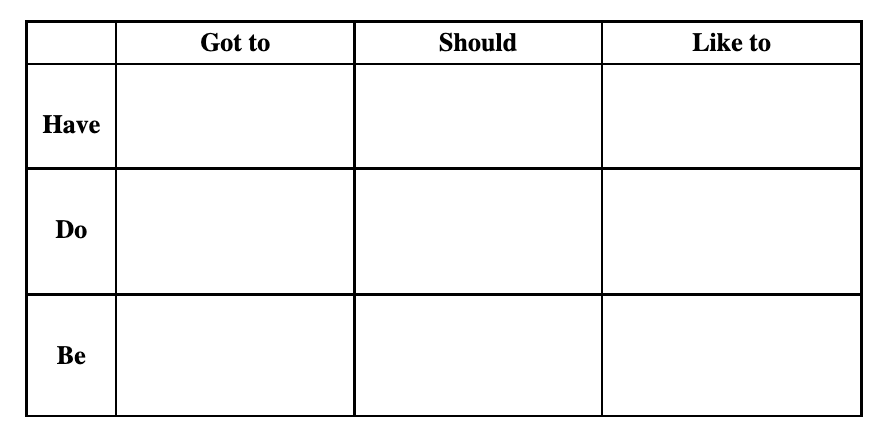Where Do You Want To Be Five Years From Today?
January 30, 2023by Ann J. Beckwith, CFP®
In goal setting, it’s important to step back and look at where we wish to be and how we spend our time today in the fulfillment of those wishes.
I was feeling overwhelmed and spread too thin by all the things on my plate: demands at work, volunteer hours in the community, relationships with friends and family, cutting the grass, and keeping up with my Instagram feed. As I whined to her, my confidante and mentor asked, “Where do you want to be in five years?” I thought she was trying to change the subject.
Explaining further, my mentor encouraged me to envision what I want my life to look like five years from now. She challenged me to think about how each of the items competing for my time and energy was helping me to attain my vision—a new concept for me and a lightbulb moment. I realized that some of the things pulling at me were not things I have to do or even things I like to do. They were things I feel like I should do. The most unfortunate part is that these imagined “necessities” were taking away from better, more efficient ways to achieve my five-year vision.
As in life, goal setting is foundational to the financial planning process. When I meet with a new client, one of our early sessions involves visioning exercises to help the client recognize, identify, and clarify his or her goals. Sometimes, these exercises lead a client to admit (perhaps for the first time) a core desire that has remained unmet, which can be incredibly powerful.
One exercise that has proven helpful in untangling competing priorities in life is an exercise that separates obligations from demands. Fill in the following grid (instructions below):

From Seven Stages of Money Maturity, by George Kinder
The “Got to” column is for the things you simply must do for your life to flow. The “Should” column is for things that feel like obligations, and the “Like to” column is your chance to dream. “Have” refers to possessions, “Do” refers to accomplishments and activities, and “Be” refers to states of existence.
After filling in the grid, analyze the list. Does your “Got to” column far outweigh your other columns? If so, you may be overwhelmed by feeling as if everything you need to do is vital.
The “Should” column can be highly revealing. Why do we feel such a strong pull from the items in the “Should” column? From a young age, we internalize messages from family, friends, and culture. Typically, these messages reflect things that are highly valued or represent the notion of success (shoulds), and we begin to process them as truth. (“You need to be making $xxx per year by age 40.”) Perceived obligations can disconnect us from our true desires.
When we direct a large portion of our efforts to these perceived obligations, we can miss out on the realization of our hopes and dreams. How do we let go of these feelings of obligation that weigh us down? UK Psychologist Dr. Sally Hinton notes, “Sometimes it’s hard to know if we want something because we truly want it or because we should want it.” She recommends the following:
Try a simple exercise to figure out the wants from the shoulds. Imagine for a minute that there is no judgement. That whatever you do is equally valued and approved of by society, your parents, your friends or whoever’s approval you most desire. That success hinges only on whether you are personally pleased with your choices, that others’ approval merely reflects your own. How would you want your life to look? Take a few minutes to visualize your ideal day, your lifestyle, how you spend your time and how you contribute to the world.
As you identify the things that suck your time and energy but do not contribute to where you want to be in five years, you can begin to shift away from these priorities. In turn, you will have more freedom to pursue the fun things in life that truly bring you joy, rest, and fulfillment. You can also begin to see how some items in your “Got to” column actually provide the means to pursue things in your “Like to” column. The prospect of saving for a big vacation maybe now gives you a little extra energy for working harder.
Helping a client come to these realizations brings me joy. In my own life, letting go of an activity in the “Should” column has given me more time to get to the gym, which helps me sleep better at night, which makes me more productive at work, which allows me to leave work on time and get back to the gym. I probably won’t get back into shape like my high school days, but who says I can’t dream and create more goals?
Resources:
Zadra, D. (2009) Five: Where will you be five years from today?
Kinder, G. (1999) Seven Stages of Money Maturity: Understanding the Spirit and Value of Money In Your Life
Hinton, S. How to Let Go of ‘Should’ and Find Out What You Really Want https://www.sallyhiltontherapyonline.com/post/2017/10/21/how-to-let-go-of-should-and-find-out-what-you-really-want
Ann J. Beckwith graduated from Furman University in 2003 with a BA in Religion. She earned a Certificate in Financial Planning from Georgetown University in 2016 before joining Abacus in March of 2017. Ann received the CFP® designation in February of 2019.
Abacus is a financial advisory and investment counsel firm known for its passion in creating abundance for clients and family businesses through skillful listening and smart financial decision making. Managing over a $1.7 billion on behalf of its 250 plus families, Abacus consists of a team of multi-disciplinary experts who work collaboratively to serve its clients.





















